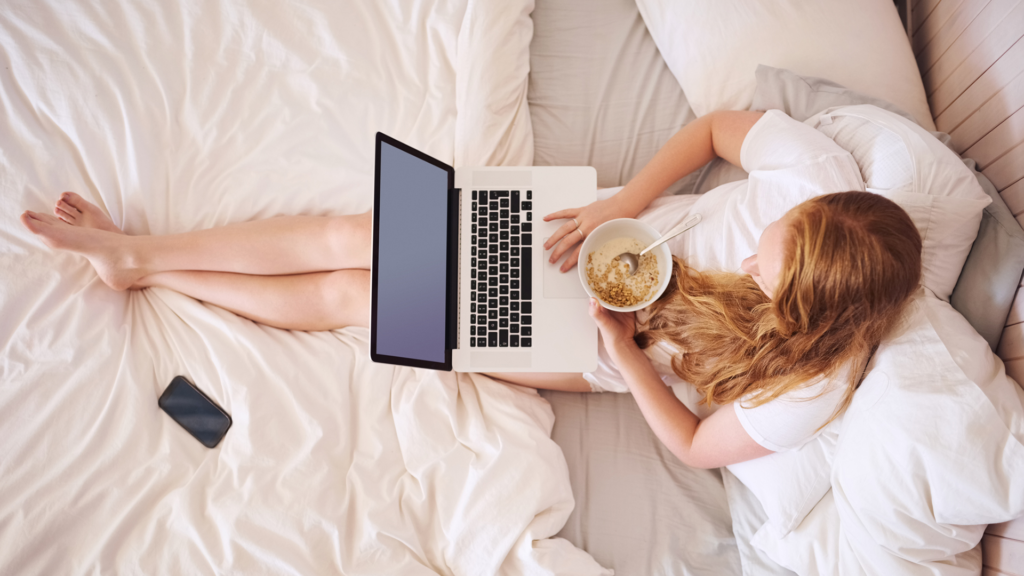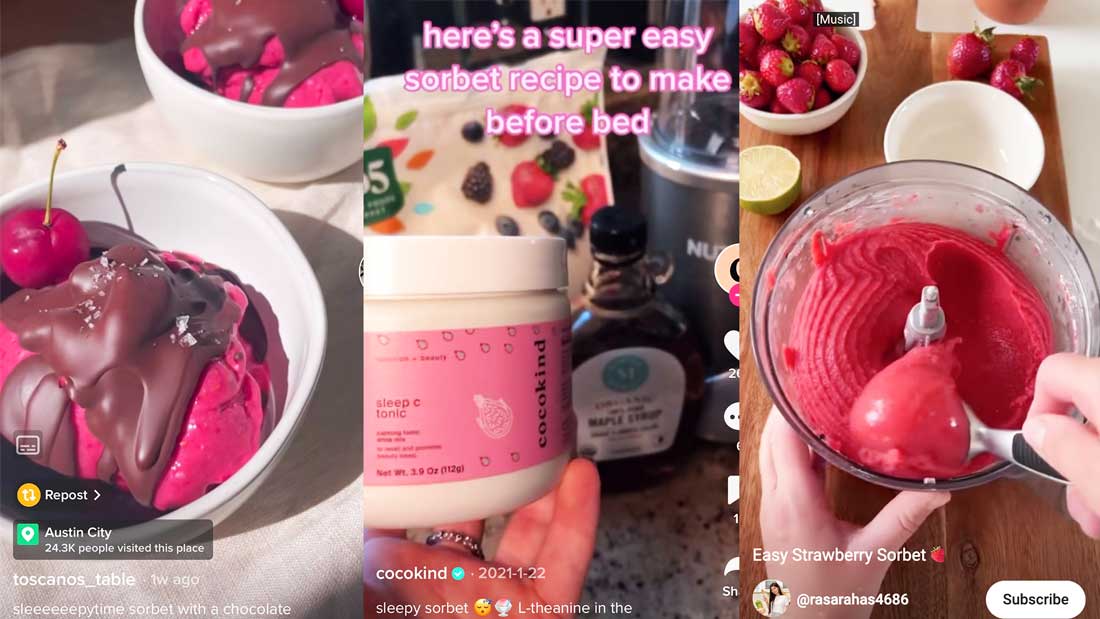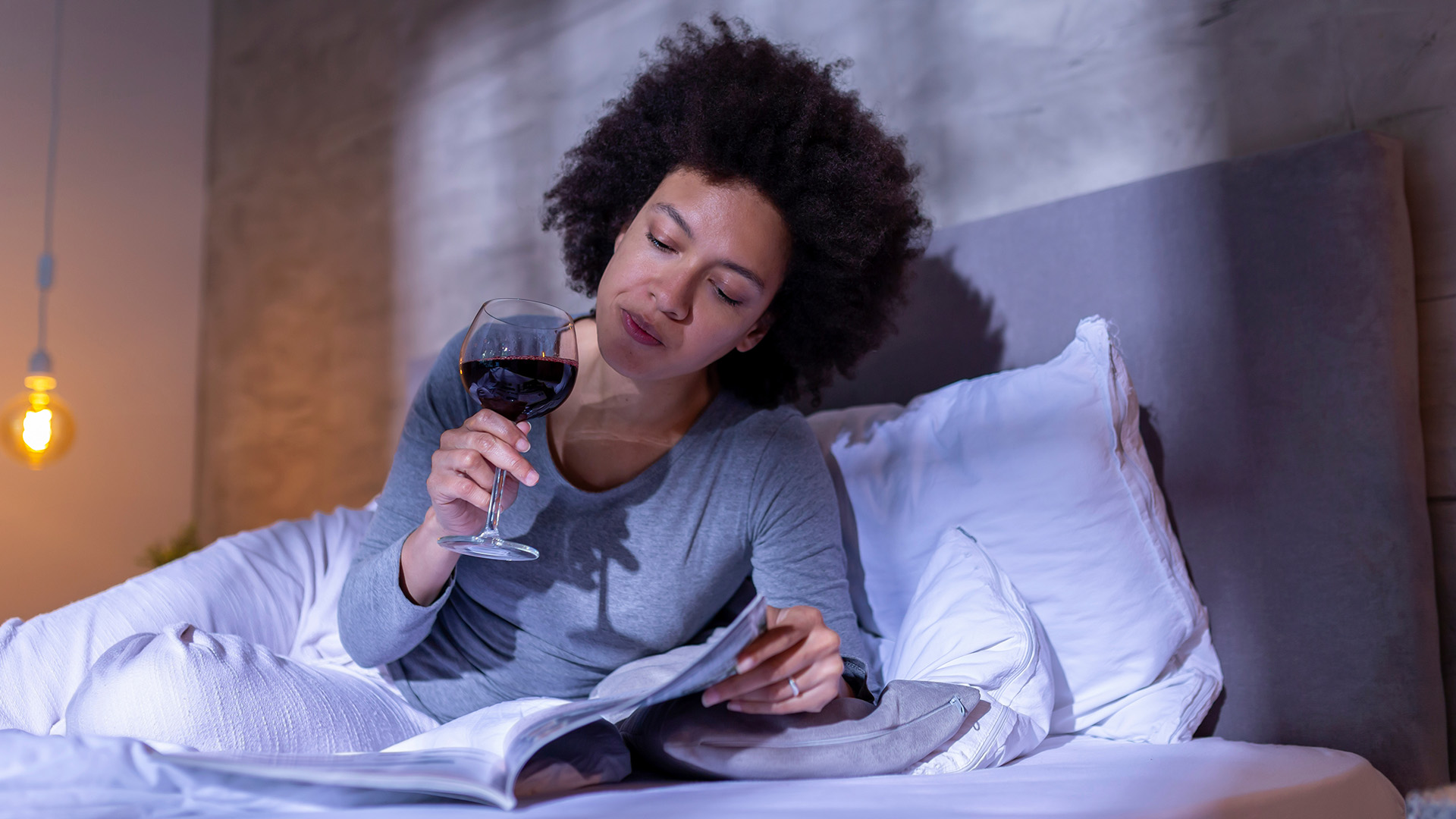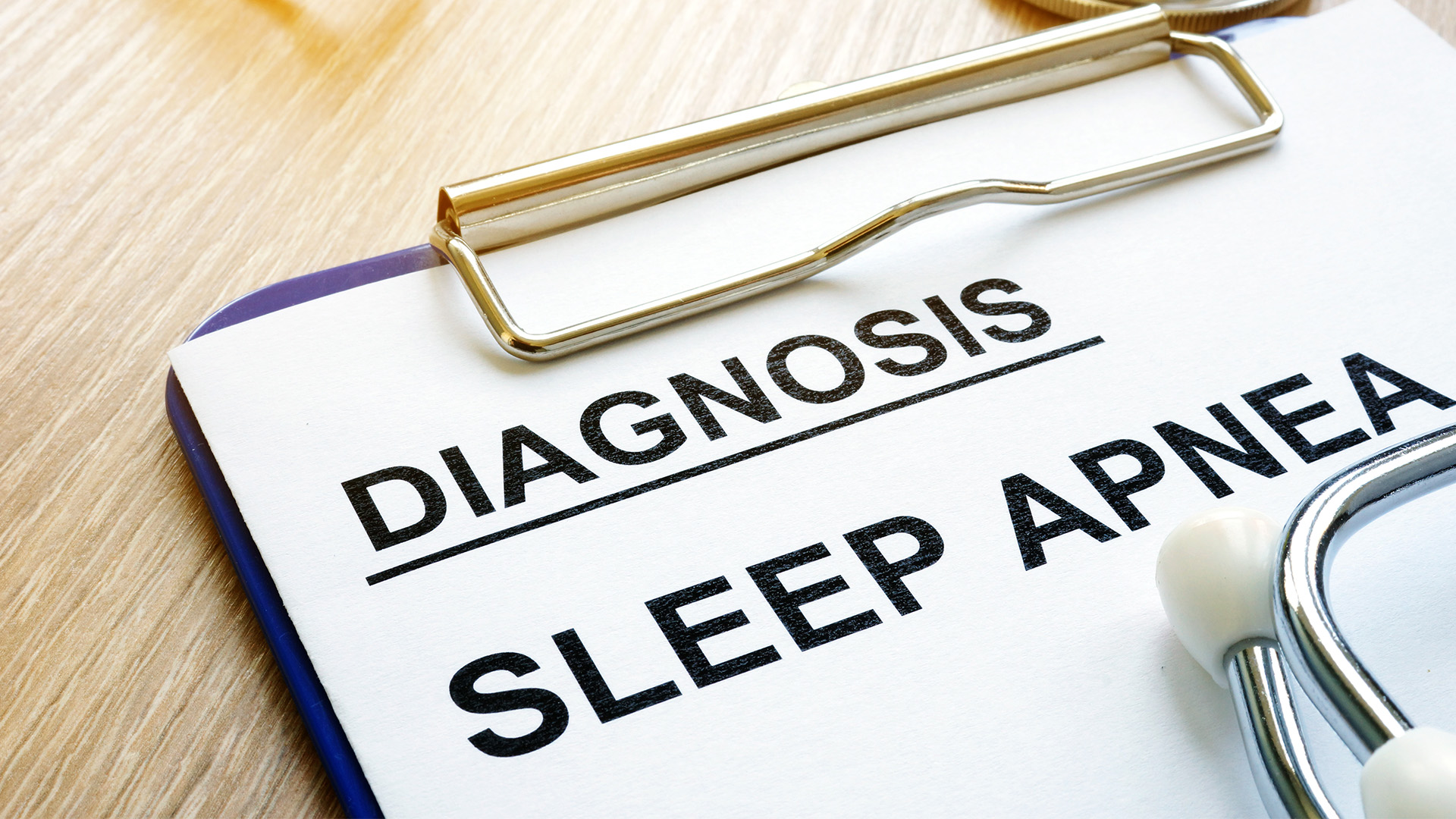
Who doesn’t love a late night snack? Personally, if I’m still hungry at the end of the day I’ll whip up a cup of herbal tea and eat a light snack, something that I know won’t upset my stomach or prompt me to get up in the middle of the night. However, there’s a lot of chatter out there about when to stop eating, what you should be eating, and how much you should be eating before bed.
Not only does it seem like everyone out there has a different opinion on eating before bed, advice can often feel like it’s conflicting, which can be confusing and anxiety-inducing. One influencer, Dr. Janine Bowring, ND (@doctorjanine), recently shared a video where she broke down what she claims to be “four things you can eat past dark.” (1)
She starts the video by saying, “We know we don’t want to spike our blood glucose levels before bed.[Blood glucose levels] going to affect our sleep, our melatonin, our leptin levels.” (1)
Read on if you’re curious to know what Dr. Bowring says are the only 4 foods you should be eating after dark, and what experts have to say about her advice.
What Does This Influencer Say Are The Only 4 Foods You Should Eat After Dark?
According to Dr. Bowring’s video, the only four foods that you should eat after dark are: nuts, cheese, hard boiled egg, and a “no carb protein powder hot chocolate.” Dr. Bowring doesn’t elaborate on the benefits of all of these foods after dark, but she does have this to say about the protein powder hot chocolate that she recommends. She notes that because of the protein it’s “not going to spike your blood glucose levels because there’s no sugar in there.” (1)
Bowring goes on to share that “it’s one of the things that I like to do if I still feel a little bit hungry after dinner.” (1)
Sleepopolis asked Yasi Ansari, MS, RDN, CSSD and National Media Spokesperson for the Academy of Nutrition and Dietetics about Dr. Bowring’s claims in her video. Ansari says that “The relationship between sleep and blood sugars is complex,” and that “Quality of sleep can depend on a variety of factors.” (2)
Ansari elaborates that many things can impact sleep quality, including overall diet, levels of stress, health history, and more can impact sleep. She goes on to say that “First, this video claims that eating foods that spike blood glucose levels impacts sleep, leptin, and melatonin. We need more information on this. Generally speaking, the timing of meals can impact sleep quality and, therefore, affect blood glucose and leptin levels the following day. However, to make this definitive claim, more research is needed and typically, anything that gets in the way of restorative sleep can end up impacting blood sugar levels that night and/or the following day.” (2)
What Kind of Food Should I Eat Before Bed?
The answer really depends on your specific dietary needs. Ansari shared a couple of good suggestions of pre-bedtime snacks like greek yogurt with berries or walnuts, cottage cheese and berries, almonds with fresh or dried fruit, and more. She notes that “[Dr. Bowring] shares / encourages “small amounts of nuts, cheese, hard-boiled eggs, and a no-carb protein powder.” While consuming a protein source is great, pairing carbohydrates with protein sources for a more satisfying and complete snack is also okay.” (2)
However, if you’re on a diet that requires you to manage your intake of carbohydrates or if you have prediabetes, Ansari recommends that your late-night snacks should adhere to your specific diet. (2)
What Foods Should I Avoid Eating Before Bed?
Broadly speaking, you should avoid eating anything that is going to upset your stomach before hitting the hay. Also, to preserve the sanctity of your sleep, you should avoid consuming caffeine shortly before going to bed.
Additionally, Ansari notes that “Eating a large meal right before going to bed can also impact sleep. When possible, give the body a couple of hours to break down dinner, and if you need a snack, consider foods that support sleep from the list above!” (2)
Ansari also recommends that you should “create a routine around bedtime. Try different snack combinations. You can also create a note on your phone or a journal of nights when you experience a good night’s sleep. Make a note of the foods you consume before bed and the time you eat them. It helps to see what is working and what is not working and to adjust accordingly.” (2)
If you have any further concerns about your diet and how it could be impacting your sleep, then you should consult your doctor.

“Sleepy Sorbet” Is Everywhere, But Does It Work? I Tried It Out Myself

Alcohol and Sleep

Influencer Says Her Oura Ring Saved Her Life After Helping Her Get Diagnosed This Sleep Disorder

10 Sleep Trends for 2024: Separating Fads from Science
Sources
- Bowring, Janine. October 24, 2024. https://www.youtube.com/shorts/KZTnpbppFIQ
- Ansari, Yasi. Personal Interview. October 29, 2024.
